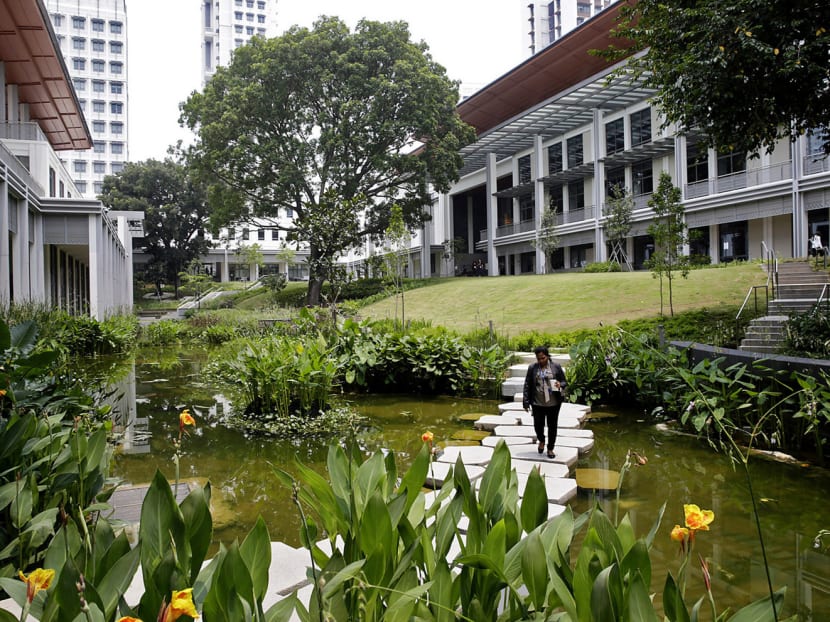Yale-NUS holds townhall over concerns about ‘troubling’ developments
SINGAPORE — Two students at Yale-NUS College have, in an article published on Tuesday, expressed concern about a series of “troubling” decisions made by the school administration, asserting that it disregarded students’ voices, while the founding president of the liberal arts college urged students not to jump to conclusions, while addressing some of the concerns.
SINGAPORE — Two students at Yale-NUS College have, in an article published on Tuesday, expressed concern about a series of “troubling” decisions made by the school administration, asserting that it disregarded students’ voices, while the founding president of the liberal arts college urged students not to jump to conclusions, while addressing some of the concerns.
A townhall was also held on Wednesday, where students could raise their concerns to the school administration.
On Tuesday, an article titled “Yale-NUS’s Halcyon Days Are Over” was published in the college’s student-run publication The Octant, with students Feroz Khan and Tee Zhuo taking issue with four developments.
Among them was a change in policy in the usage of space in the college, which sees a new Event Approval Committee to assess the “desirability and feasibility” of holding an event on campus.
And any event that requires licences or permits under the Public Entertainments and Meetings Act or a permit under the Public Order Act would not be allowed.
Calling it a “heavy-handed invocation of Singapore law”, the writers said the student body was not consulted in the drafting of the policy, although the process started as far back as September last year.
The students were also unhappy about the suspension of the Yale-NUS International Relations and Political Association’s activities, noting that no reasons have been given so far. They also expressed concern about the dissolution of a graduation committee, and the provision of mental health resources.
When contacted, Tee, a third-year-student, said the article “was mostly about getting both our students and administration to recognise the need for better communication and student input”. He added: “Octant articles and other medium are used often to engage in such conversation.”
In a response article published the same day, the college’s founding president Prof Pericles Lewis said that while college staff “accept the role of students expressing their views on matters of concern to the college community”, he had hoped that students “will begin from a place of charity and consider that administrative decisions they may not like may have legitimate reasons behind them”.
“Furthermore, I would hope that even in a culture of ‘rapid reactions’ on social media, our students would take the time to think and inform themselves on the issues before jumping to conclusions or publishing those conclusions,” he wrote.
Turning to some of the issues flagged by the students, Prof Lewis, commenting on the new Event Approval Committee, said the college was primarily concerned with external events, and care had to be taken to ensure it was not providing implicit subsidies to private companies.
In response to TODAY’s queries, a Yale-NUS spokesperson said: “Our model of education at Yale-NUS College is founded on the basis of free exchange of ideas”. The college supports “respectful sharing” and has a “thriving culture of open discussion and debate”, the spokesperson added.
Tee said the townhall on Wednesday was “productive”.
“I’m very proud that many students turned up to engage in a conversation with administrators,” he said. “The dialogue was cordial and cooperative and has shed light on steps to further student engagement on decisions in the school.”
First-year student Natalie Sutanto, who also attended the townhall, said that some of the concerns the students had were that not everyone was kept informed of the changes and some were afraid the school administration would curtail student participation.
But the townhall with school administrators provided assurance, she added.







